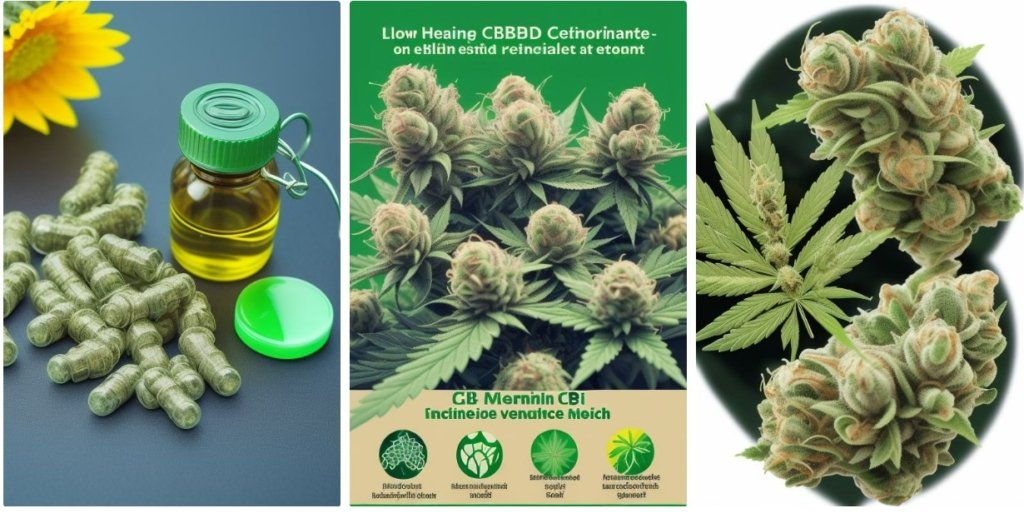CBD: A Natural Solution for Chronic Pain and Anxiety

Table of Contents
Introduction
Cannabidiol (CBD) has emerged as a promising natural remedy for a variety of ailments, including chronic pain and anxiety. Derived from the cannabis plant, CBD is non-psychoactive, meaning it doesn’t produce the “high” associated with tetrahydrocannabinol (THC). This article explores the benefits of CBD, the science behind its efficacy, and how it can be incorporated into your wellness routine to manage chronic pain and anxiety.
What is CBD?
CBD is one of over 100 cannabinoids found in the cannabis plant. It interacts with the body’s endocannabinoid system (ECS), which plays a crucial role in regulating various physiological processes, including pain, mood, and immune response. Unlike THC, CBD does not have psychoactive effects, making it an attractive option for those seeking relief without the mind-altering effects of cannabis.
Benefits of CBD
1. Pain Relief
CBD has been shown to have significant analgesic properties, making it effective in managing chronic pain conditions such as arthritis, multiple sclerosis, and fibromyalgia.
- Mechanism: CBD interacts with ECS receptors to reduce inflammation and modulate pain signals. It also influences neurotransmitter activity, which can further alleviate pain.
- Research: Studies have demonstrated that CBD can reduce chronic pain and improve sleep quality in patients with conditions such as rheumatoid arthritis and neuropathic pain.
2. Anxiety Reduction
CBD is known for its anxiolytic (anxiety-reducing) effects, offering a natural alternative to traditional anti-anxiety medications.
- Mechanism: CBD influences serotonin receptors in the brain, which play a key role in regulating mood and anxiety. It also affects the limbic and paralimbic brain areas, involved in emotional processing.
- Research: Clinical trials have shown that CBD can reduce anxiety in individuals with social anxiety disorder, post-traumatic stress disorder (PTSD), and generalized anxiety disorder.
How to Use CBD for Chronic Pain and Anxiety
1. CBD Oil
CBD oil is one of the most popular and versatile forms of CBD. It can be taken sublingually (under the tongue) for fast absorption or added to food and beverages.
- Dosage: Start with a low dose (5-10 mg) and gradually increase until you find the optimal dose for your needs. It’s important to consult with a healthcare professional for personalized advice.
2. CBD Capsules
CBD capsules provide a convenient and precise way to consume CBD, with each capsule containing a specific dose.
- Dosage: Follow the recommended dosage on the product label or consult with a healthcare professional.
3. Topical CBD
Topical CBD products, such as creams, balms, and salves, can be applied directly to the skin to target localized pain and inflammation.
- Usage: Apply a small amount to the affected area and massage it into the skin. Repeat as needed.
4. CBD Edibles
CBD edibles, such as gummies and chocolates, offer a tasty and discreet way to consume CBD.
- Dosage: Follow the recommended dosage on the product label and adjust as needed based on your response.
5. CBD Vapes
Vaping CBD allows for rapid absorption through the lungs, providing quick relief from pain and anxiety.
- Usage: Use a CBD vape pen or vaporizer and follow the manufacturer’s instructions. Start with a small amount and increase as needed.
Safety and Side Effects
While CBD is generally considered safe, it can cause side effects in some individuals. Common side effects include:
- Dry mouth
- Drowsiness
- Dizziness
- Changes in appetite
- Diarrhea
It is essential to consult with a healthcare professional before starting CBD, especially if you are taking other medications, as CBD can interact with certain drugs.
Legal Considerations
The legality of CBD varies by country and state. In many places, CBD derived from hemp (containing less than 0.3% THC) is legal, while CBD derived from marijuana is subject to stricter regulations. Always check the legal status of CBD in your area before purchasing or using it.
Conclusion
CBD offers a natural and effective solution for managing chronic pain and anxiety. By interacting with the endocannabinoid system, CBD can reduce inflammation, modulate pain signals, and influence mood-regulating neurotransmitters. Whether you choose CBD oil, capsules, topicals, edibles, or vapes, incorporating CBD into your wellness routine can help alleviate symptoms and improve your quality of life. Always consult with a healthcare professional to determine the best dosage and form of CBD for your individual needs.
References
- Vuckovic, S., Srebro, D., Vujovic, K. S., Vucetic, C., & Prostran, M. (2018). Cannabinoids and Pain: New Insights From Old Molecules. Frontiers in Pharmacology, 9, 1259.
- Blessing, E. M., Steenkamp, M. M., Manzanares, J., & Marmar, C. R. (2015). Cannabidiol as a Potential Treatment for Anxiety Disorders. Neurotherapeutics, 12(4), 825-836.
- Fitzcharles, M. A., Niaki, O. Z., Hauser, W., & Hazlewood, G. (2016). Position Statement: A practical guide to the therapeutic use of cannabis in chronic pain management. Pain Research and Management, 2016, 1-7.
If you have any specific questions about using CBD for chronic pain or anxiety or need advice on choosing the right product, feel free to ask!






Leave a Reply